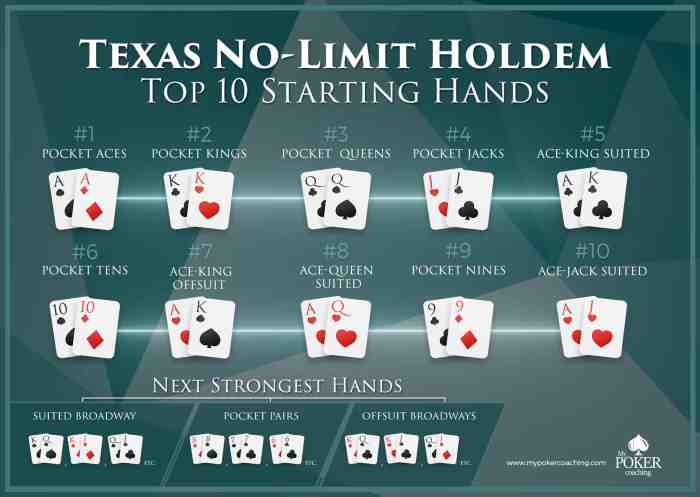Tossed in as a losing poker hand is a phrase that encapsulates the strategic and psychological complexities of poker gameplay. This phrase has metaphorical implications and cultural references that extend beyond the realm of poker, making it a fascinating subject for exploration.
The decision to “toss in” a losing hand involves a careful consideration of strategic implications, probability, and psychological factors. This move can be advantageous in certain situations, such as when it allows a player to minimize losses or set up a bluff.
However, it can also be disadvantageous if it gives up on a hand that has potential.
Contextual Overview

The phrase “tossed in as a losing poker hand” signifies a player discarding a hand with low winning probability, typically to avoid further losses or as a strategic move to deceive opponents.
Metaphorically, it represents abandoning a venture or project that is unlikely to succeed, or a situation where one accepts defeat or withdraws from a competition.
Poker Strategy and Tactics
Advantages of Tossing In
- Minimize losses by cutting potential risks.
- Deceive opponents by concealing the true strength of your hand.
- Force opponents to make decisions based on incomplete information.
Disadvantages of Tossing In
- Loss of any potential winnings.
- Revelation of weakness to opponents, allowing them to exploit it.
- Missed opportunities to bluff or manipulate opponents.
Psychological Aspects
Tossing in requires a combination of strategic thinking, risk tolerance, and emotional control. Players must weigh the potential costs and benefits of the decision and overcome the psychological pressure of losing.
Game Theory and Probability

Probability of Winning
The probability of winning when tossed in as a losing hand depends on several factors, including the number of players, the strength of the other hands, and the betting patterns.
In a simplified scenario with two players, the probability of winning with a hand that is 10% weaker than the opponent’s is approximately 20%.
Role of Game Theory
Game theory provides a framework for analyzing the decision-making process behind tossing in. It helps players understand the optimal strategies and anticipate the actions of their opponents.
Cultural and Social Aspects: Tossed In As A Losing Poker Hand
Cultural Significance
The phrase “tossed in as a losing poker hand” has become ingrained in popular culture, representing failure, withdrawal, or giving up on a difficult task.
In some cultures, it is seen as a sign of wisdom and maturity to recognize when a situation is beyond repair and to cut losses.
Social Implications, Tossed in as a losing poker hand
The phrase is often used in idioms and expressions, such as “don’t throw good money after bad” or “it’s time to fold ’em.”
It can also be used in social contexts to indicate a person’s unwillingness to engage in a losing argument or conflict.
Psychological Implications
Influence of Emotions
Emotions such as fear, disappointment, and frustration can influence the decision to toss in. Players may be tempted to stay in a losing hand due to the sunk cost fallacy or the desire to avoid the psychological pain of losing.
Risk Tolerance
Players with higher risk tolerance may be more likely to toss in a losing hand early on, while those with lower risk tolerance may hold on longer.
Cognitive Biases
Cognitive biases, such as the confirmation bias, can lead players to overvalue their own hand or underestimate the strength of their opponents’ hands, affecting their decision to toss in.
Historical Evolution
The phrase “tossed in as a losing poker hand” has its roots in the early days of poker, when the game was played with a deck of 20 cards.
In the 19th century, the phrase was used to describe a player who had lost all of their chips and was forced to leave the table.
Over time, the meaning of the phrase has evolved to include any situation where a person gives up or accepts defeat.
General Inquiries
What is the significance of “tossed in as a losing poker hand”?
This phrase refers to the strategic decision of giving up on a losing hand in poker. It involves a calculation of probability, consideration of psychological factors, and an understanding of game theory.
When is it advantageous to “toss in” a losing hand?
It can be advantageous to “toss in” a losing hand when it allows a player to minimize losses, set up a bluff, or improve their position in the game.
What are the psychological factors that influence the decision to “toss in” a losing hand?
Emotions, risk tolerance, and cognitive biases can all play a role in the decision-making process when considering whether to “toss in” a losing hand.